Helen Tope reviews Redoubtable, showing in our cinema from 15th – 21st June.
Telling the story of the ultimate modern auteur, Redoubtable takes us into the life of Jean-Luc Godard. Set across 1960’s Europe, the film is achingly stylish. The clothes, the interiors; you will want them all. But behind the tinted specs, Godard’s world is in crisis.
As a young film-maker, Jean-Luc Godard was at the forefront of New Wave cinema. The movement, categorised by a free editing style and fresh directorial voices; Godard found success not only in Europe, but internationally. The anti-Hollywood approach taken by up the New Wave found its audience. Godard’s films Breathless and Contempt, featuring Jean Seberg and Brigitte Bardot, made a star of their director.
In Redoubtable, we meet Godard (played by Louis Garrel) at the height of his fame. Living in Paris with his new love, Anne Wiazemsky (Stacy Martin), it is obvious that fame isn’t suiting the 37 year old. Grouchy, sulky and jealous of Anne’s blossoming acting career, Godard wants to escape back behind the camera, but he is always found out.
When attempting to film the student protests in May 1968, Godard’s shot is “ruined” by an earnest fan, delighted at finding his hero in front of him. Godard’s attempt to engage with the students is met with derision. The darling of French cinema is already reading as ‘establishment’ to the university crowd. His views are shouted down; humiliated, he has no choice but to exit, leaving the revolution behind him.
Director Michel Hazanavicius invites us to laugh at his Godard. He falls, he breaks his glasses (several times), and indeed there is an irreverence and playfulness to the film that, at times, makes it quite likeable. We are also meant to see through the pomposity and self-importance that stops Godard from moving forward, both professionally and personally. He is caught in a moment of triumph and cannot get out. Too aware of repeating former glories (referring to his previous hits as ‘bourgeois’), and too afraid to move into an untried, unmarked future. It is the worst possible position for a director to be in, and the frustration does not show him in a good light. Speaking for Anne when she is quite capable of speaking for herself; treating her as a nuisance at a party, Godard receives a bashing from Redoubtable, although the legendary director himself has always acknowledged his bad behaviour.
It serves our film well, as we immediately side with Anne. A brilliant performance from Stacy Martin, she engages us right from the start. Bright and vivacious, she is the perfect film heroine. Never afraid to question what’s in front of her, Anne is the modern woman that emerged during the 1960’s. Eager to learn, but also happy to ditch the existential philosophy for a copy of Elle. Anne is unstuffy and egalitarian; pointing the way ahead for Godard, if only he could stop referring to himself in the third person.
The film is at its best discussing the relationship between the artist and their work. The difficulty Godard has to adjusting to failure after success is easy to recognise. We see him grappling with the news that his most recent film, political comedy La Chinoise, has not been not well received. But Jean-Luc does not trust his good reviews either. At this point, film breaks off into self-referential territory. As the creator of multi Oscar-winning The Artist, Hazanavicius examines the difficulty in trusting success. The weight of expectation (self-imposed as much as anything else), threatens the overwhelm and stifle the creative process. As the film ends, we find Godard embracing a more democratic approach in his film-making. He has ditched ‘Le Godard’, but what is left, we are left to ponder.
Redoubtable’s main stumbling block is one of tone. Ducking between documentary and pastiche, the film is never quite sure what it wants to be. The lack of continuity in the authorial voice leaves us confused. Are we meant to be laughing, or find ourselves appalled at Godard’s outrageous ego?
The film’s style doesn’t help, either. Full of Godardian touches – jump-cuts, inter titles – plus nods to films such as Annie Hall, the multi-layering of references adds to the disorientating effect. You don’t know where the film wants to place you in terms of loyalties and perspective, and that’s a problem.
While a worthy biopic would not be appropriate to illustrate Godard’s genius, this view of him; a preening, politicised bore, leaves us conflicted. We know this is not the real Godard; a titan of film theory, and still active and creative at 87 years old. Hazanavicius’ Godard is whiny, complaining and ineffectual. We see little of the man who changed the course of modern cinema.
Hazanavicius’ vision leaves us unsure of the way ahead for the film-maker. Should we play the cynic like Godard, or like Anne, argue for a middle ground? Clear, confident film-making, executed with intelligence. Popular doesn’t always mean bad, as Hazanavicius’ film The Artist has proved.
Filled with passion for the work of early cinema, the silent film took the industry and cinema-goers by storm. The project was deemed unsellable by insiders, but it became a commercial success. When comparing the two films, The Artist shows where Redoubtable might have gone. An homage to past masters, while telling a story that resonates with a contemporary audience. Hazanavicius got the balance right before, and it makes the mismatch of Redoubtable so much more striking. The Artist is structurally a less complex film, but it succeeds in the building of a simple idea. Redoubtable starts at the other end of the equation, and gets in a right middle as a result. As an audience, we are never quite sure of where we are, and no amount of tricks or blink-and-you’ll-miss-them moments can make up for that. It’s a philosophy that Godard himself would recognise: “All you need for a movie is a gun and a girl. “
Redoubtable does have its moments of clarity, but they struggle to make themselves heard. Hazanavicius has not trusted the story of Godard to tell itself, and instead we have a film that refuses to get out of its own way. Throughout this film, there is more doubt in success than failure, and in this, Redoubtable perhaps tells us more about Hazanavicius than Godard. There is a better film to be made about Godard, but that will be left to another director, another time. What Redoubtable leaves us with is the feeling of certainty that comes with good film-making. The best films look like they have fallen into place, and when that happens we should simply trust that it works. Because it does.

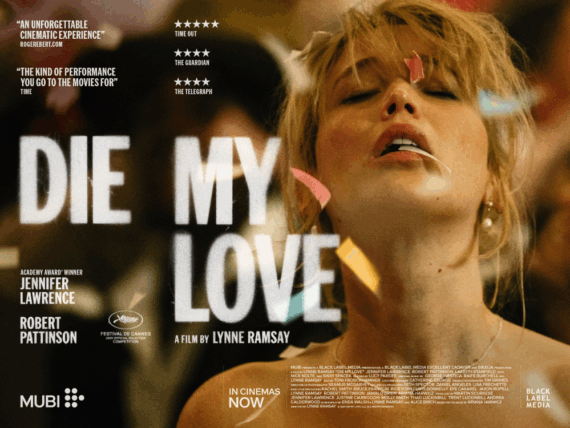
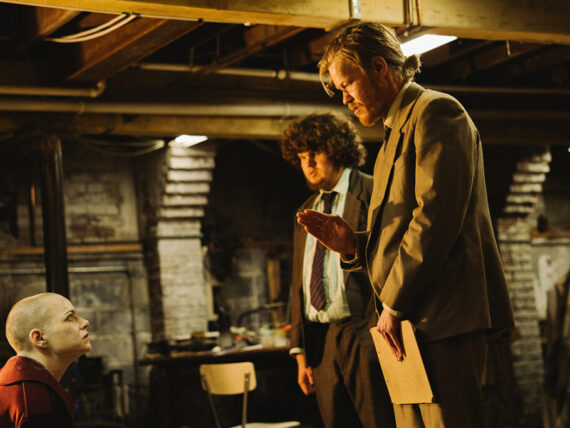
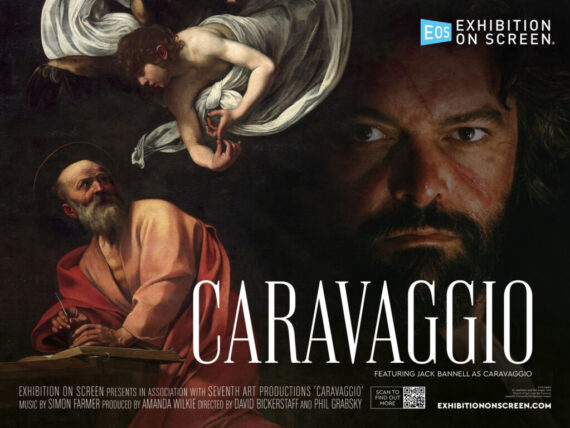
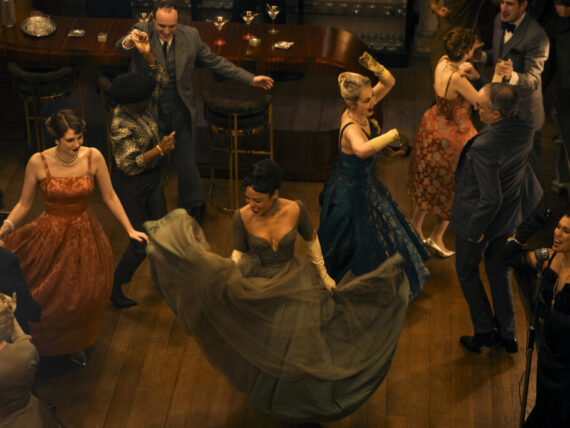
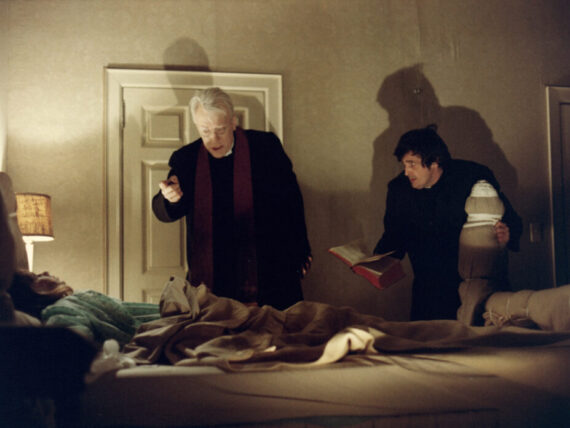
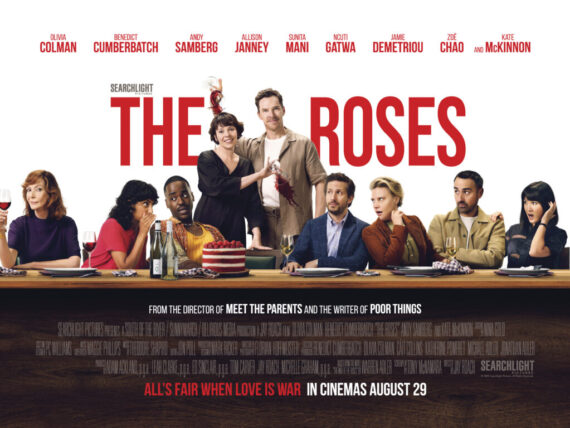
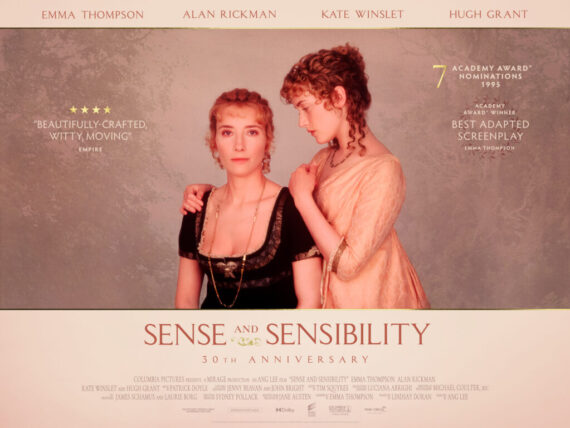

Comments
Comments are closed.